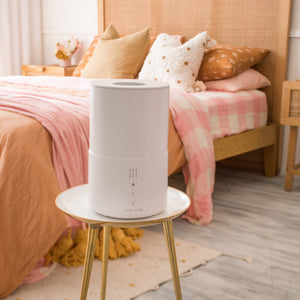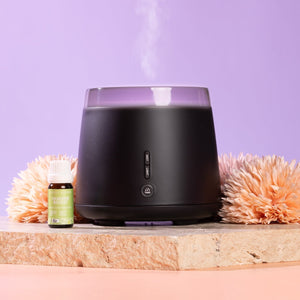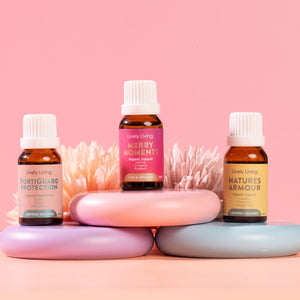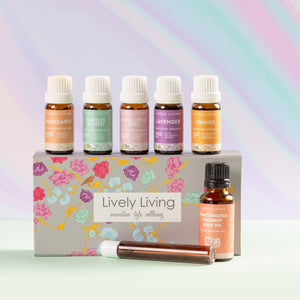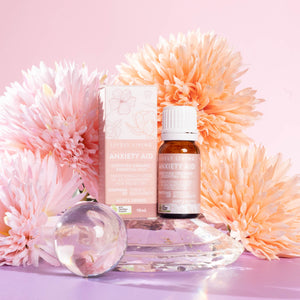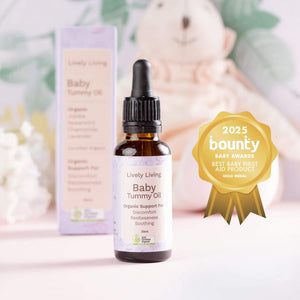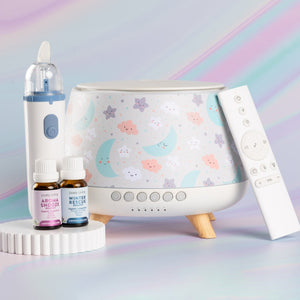Essential Oils for Sleep Apnea: A Natural Path to Rest
Essential oils for sleep apnea can be a game-changer.
If you're one of the many dealing with this condition, you will know how disruptive it can be to your life. Without restful nights, sleep apnea can not only effect your daily life, it can be a serious threat to your health.
Finding effective treatments is crucial, and while traditional methods have their place, they may not always offer complete relief. That's where essential oils come in.
The use of essential oils for sleep apnea, alongside conventional therapies, could provide that extra boost towards better breathing and more peaceful slumber. It's time to explore this natural path to rest!
Table of Contents:
- The Intricacies of Sleep Apnea
- Conventional Treatments for Sleep Apnea
- Essential Oils as a Complementary Approach to Treating Sleep Apnea
- How to Use Essential Oils for Better Sleep
- Safety Precautions When Using Essential Oils
-
FAQs in Relation to Essential Oils for Sleep Apnea
- What essential oils are good for sleep apnea?
- How can I treat sleep apnea naturally?
- Can you naturally improve sleep apnea?
- Is lavender oil good for sleep apnea?
- Conclusion
The Intricacies of Sleep Apnea
Unpicking the complexities surrounding sleep apnea, it's a condition that affects nearly 5% of adults in Australia. This prevalent disorder disrupts an individual's rest by causing frequent pauses in breathing during their slumber.
We can categorize this into three primary types: obstructive sleep apnea (OSA), central sleep apnea (CSA), and complex or mixed sleep apnea syndrome. Each type comes with its unique set of challenges and potential health risks if left untreated.
Recognizing Symptoms of Sleep Apnea
Sleeping disruptions such as intermittent breath-holding episodes followed by gasping or choking sounds are common indicators pointing towards this disorder. But remember, not all who snore have this condition; it's crucial to observe irregularity patterns like snorting between snores which might hint at periods without any breath intake.
Loud snoring is just one piece of the puzzle though - daytime symptoms also play a significant role here. Waking up with headaches due to fatigue from disrupted deep REM cycle could be another sign along problems focusing during daytime hours because lack quality deep REM cycle needed proper cognitive function restoration. The National Sleep Foundation.
A Closer Look at Obstructive Sleep Apnea
In OSA cases, physical blockages typically cause interruptions in airflow when throat muscles relax excessively or due to obesity-related issues affecting normal respiration processes while sleeping.
This form presents itself more commonly among patients compared to CSA where your brain fails sending appropriate signals for controlling muscle movements related respiratory functions leading sudden stops starts breathing even amidst sound asleep individuals having both these forms simultaneously suffer Complex Mixed Syndrome lesser-known but equally concerning variant disease requiring careful medical attention management strategies.
Conventional Treatments for Sleep Apnea
Sleep apnea is a potentially hazardous sleep disturbance that can bring about serious medical problems if not addressed. Medical devices such as CPAP and BiPAP machines are often used to keep airways open during sleep in order to treat obstructive and central sleep apnea.
A CPAP machine delivers a constant flow of pressurized air through a mask worn over the nose or mouth. This steady stream of oxygen helps keep the throat from collapsing during sleep, which in turn prevents pauses in breathing associated with obstructive and central sleep apnea.
The Effectiveness of Conventional Treatments
Research has shown that these treatments significantly reduce symptoms like loud snoring and daytime fatigue while improving overall quality of life for those suffering from severe forms of this condition. However, sticking with these therapies remains an issue due to factors such as discomfort caused by masks or side effects like dry mouth and nasal congestion.
To combat this challenge, manufacturers have made significant improvements in device design over time - including smaller sizes, quieter operation modes, heated humidification systems, and more comfortable masks - all aimed at enhancing user comfort without compromising efficacy.
These advancements aim not only to treat but also improve the high-quality sleep experience for patients dealing with both obstructive and central types.
Potential Risks Associated With These Devices
While CPAP and BiPAP machines are generally safe treatments for treating conditions related to breath cessation episodes experienced by individuals diagnosed, their use does come with potential risks.
Some users may experience skin irritation around areas where equipment contacts the face and stomach bloating due to swallowed excess airflow into the esophagus during therapy sessions.
It's important that any issues be discussed promptly with healthcare providers so that appropriate adjustments can be implemented, ensuring effective management of the disease along with maintaining patient compliance towards the prescribed regimen despite the challenges faced with daily usage.
While CPAP and BiPAP machines are effective in treating sleep apnea, discomfort from masks and side effects like dry mouth can hinder patient compliance. Despite potential risks such as skin irritation or bloating, device advancements aim to enhance user comfort without compromising efficacy. Prompt communication with healthcare providers ensures adjustments for better disease management.
Essential Oils, A Complementary Approach to Treating Sleep Apnea
Sleep apnea is no small issue, but essential oils might offer some relief. These natural remedies have been used for centuries in traditional medicine and can complement conventional treatments. Specifically, inhaling diffused peppermint oil lavender oil, or eucalyptus oil before sleep may stimulate endorphin production and promote high-quality rest.
Peppermint Anti-Inflammatory Properties
You've probably enjoyed the refreshing scent of Peppermint more than once without realizing its potential health benefits. Peppermint isn't just invigorating, it has anti-inflammatory properties that could help manage obstructive sleep apnea symptoms by reducing inflammation within your respiratory system.
Inhaling diffused peppermint oil aids in clearing mucus from sinuses, which helps reduce snoring. ”a key symptom of this condition. ”thus promoting better breathing during slumber. Studies suggest that it can be particularly effective when combined with other treatment methods such as using a CPAP machine.
Lavender Oil for Calmness and Restful Sleep
If you're looking for calmness before bedtime, consider turning to lavender essential oil. Known far and wide for its calming effects on both body and mind, lavender plays an important role in promoting restful sleep among individuals suffering from sleeping disorders like central sleep apnea.
The soothing aroma calms nerves while relaxing muscles, leading to drowsiness, thus improving the overall quality of slumber. Diluting pure lavender with carrier oils enhances safety, especially when applying directly to the skin.
Eucalyptus Oil for Clear Airways
- Eucalyptus Essential Oil is known not only because it smells good but also due to its decongestant qualities.
- A study found out that Eucalyptus effectively relieves airway congestion resulting from colds allergies, thereby improving breathing during nighttime - crucial when dealing with any form of obstructive or central sleep apneas.
- Last but not least, always remember these are supplements rather than replacements.
Essential oils like peppermint, lavender, and eucalyptus can be a breath of fresh air for sleep apnea sufferers. Peppermint clears sinuses and reduces inflammation; lavender promotes calmness and restful sleep; while eucalyptus relieves airway congestion. Remember though, they're not substitutes but supplements to traditional treatments.
How to Use Essential Oils for Better Sleep
The world of essential oils offers a plethora of benefits, one being the potential enhancement of sleep quality. It's important to note that while these natural remedies can complement conventional treatments like CPAP machines for sleep apnea, they are not standalone solutions. Lively Living have a range of sleep essential oils that are certified organic and made in Australia.
Creating Your Own Essential Oil Blend
Diving into the artistry behind blending your own concoction is an exciting venture. The key ingredients you'll need in this journey towards restful slumber include marjoram oil, thyme oil, and lemon oil; each possessing unique properties beneficial to high-quality sleep.
Lemon oil, despite its invigorating scent profile, has been found effective in clearing mental clutter and reducing anxiety - two common culprits disturbing peaceful rest. Thyme oil takes center stage with its calming effect on both body and mind, making it a crucial component when preparing oneself for bedtime.
To whip up this potent blend:
- Pour 10 drops each of marjoram, thyme, and lemon essential oils into a dark glass bottle, which helps preserve their potency longer than clear containers would.
- Add approximately 30 ml (1 oz) carrier oil such as jojoba or sweet almond; serving as dilution agents ensuring safety during topical application or inhalation.
- A vigorous shake before every use ensures all elements merge harmoniously together, creating your very own personalized sleeping aid.
Safety Precautions When Using Essential Oils For Sleep Apnea
In our enthusiasm over nature's gifts like essential oils, we must never forget safety comes first, especially around vulnerable individuals such as babies or those dealing with certain health conditions including asthma.
Suggest mixing one drop of any given essential oil with at least five milliliters (one teaspoon) carrier liquid prior to applying topically or diffusing.
It bears repeating: Sleep apnea patients should never ingest any essential oils, without consulting healthcare professionals well versed in aromatherapy applications.
Safety Precautions When Using Essential Oils
If you suffer from sleep apnea symptoms, Essential oils, while offering a myriad of benefits for sleep apnea patients and those seeking restful sleep, require careful handling. These potent substances demand respect in their usage.
This simple yet critical step ensures the safe use of these powerful natural remedies without causing skin irritation or other adverse reactions.
Dilution is Key
The high concentration levels found within essential oils such as lavender oil, eucalyptus oil, and peppermint oil necessitate dilution prior to any form of contact. Carrier oils serve this purpose perfectly; they allow for safer application by reducing the potency level while retaining therapeutic properties. The recommended ratio typically falls between 1-5% essential oil to carrier depending on specific types being used - always refer back to manufacturer guidelines to ensure correct proportions are adhered to.
Consider Health Conditions and Age Groups
Certain health conditions can render individuals more sensitive towards certain types of essentials. For instance, asthma sufferers might experience negative reactions from strong scents like eucalyptus or peppermint. In addition, essentials should be cautiously utilized around babies and young children given ongoing development of respiratory systems. It's paramount to consult healthcare professionals when introducing new elements to wellness routines, especially with underlying concerns involved.
Patch Test Before Full Application
Before applying essential oils to the skin, it is recommended to conduct a patch test by using a diluted amount on a small area and observing any potential allergic reactions. Try applying a bit of weakened oil to a tiny part of the skin and watch for any unfavorable responses. This step helps to identify any potential allergies or sensitivities before full application.
FAQs in Relation to Essential Oils for Sleep Apnea
What essential oils are good for sleep apnea?
Lavender, peppermint, tea tree and eucalyptus can aid in managing sleep apnea. They promote restful sleep, reduce inflammation, and clear airways, respectively.
How can I treat sleep apnea naturally?
Natural remedies like weight loss exercises, positional therapy, or using essential oils for sleep apnea, such as lavender or eucalyptus may help manage symptoms of sleep apnea.
Can you naturally improve sleep apnea?
Yes. Lifestyle changes like maintaining a healthy weight, quitting smoking, and limiting alcohol intake can significantly improve the condition of those with mild to moderate sleep apnea.
Is Lavender Oil good for sleep apnea?
Absolutely, its a key ingredient! Lavender oil's calming properties assist in promoting a better quality of rest by helping individuals fall asleep more easily. Lively Living Lavender essential oil is Certified Organic with the ACO, and the highest quality available.
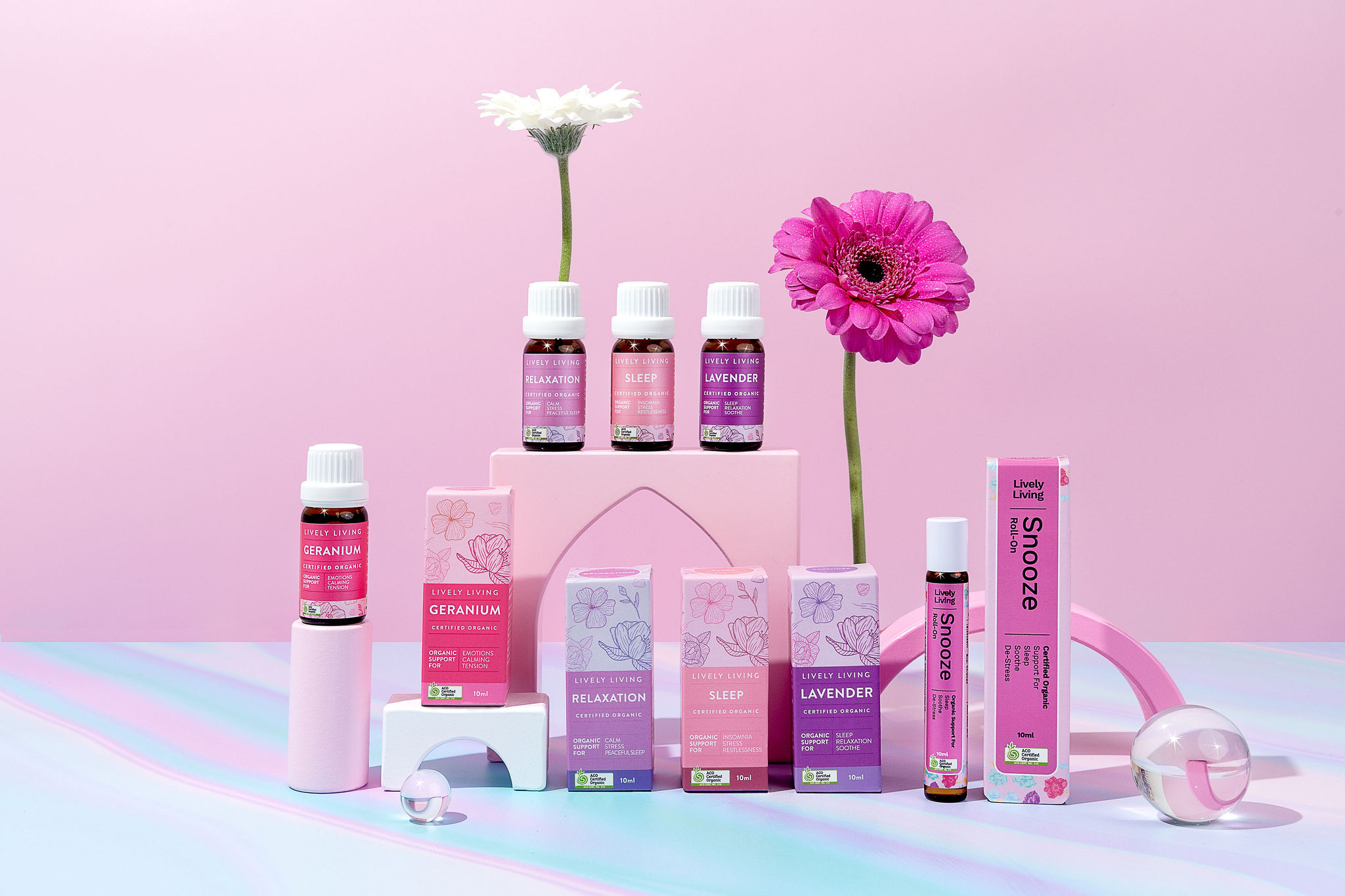
Conclusion
Understanding sleep apnea is the first step towards finding relief. A significant number of grown-ups are influenced by this condition, which can cause genuine medical issues if not managed.
Traditional treatments such as CPAP or BiPAP machines have proven effective for many. However, they may not always provide complete respite from symptoms.
This is where essential oils for sleep apnea come into play. Oils like peppermint oil with its anti-inflammatory properties and lavender oil known for inducing calmness can be beneficial in managing this condition.
Eucalyptus oil too has shown promise in reducing airway congestion thereby improving breathing during sleep. But remember, these are complementary approaches and should never replace medical treatment.
Safety precautions must also be adhered to when using essential oils especially around vulnerable individuals like babies or those with certain health conditions.
If you're ready to explore the benefits of essential oils for sleep apnea further, consider checking out our range of quality certified organic essential oils at Lively Living. We offer an array of ultrasonic aromatherapy diffusers that will operate through out the night, and organic roll on oils that could help enhance your journey towards restful nights!











